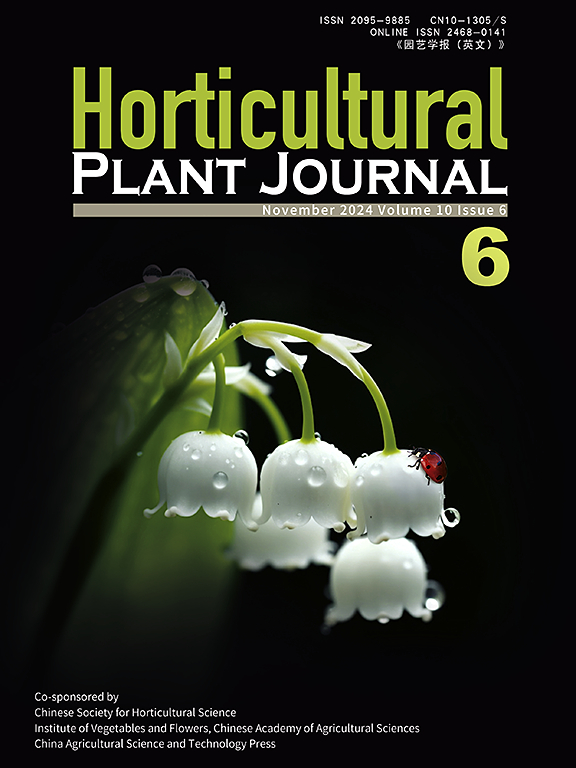Deep learning applications advance plant genomics research
IF 6.2
1区 农林科学
Q1 HORTICULTURE
引用次数: 0
Abstract
With the rapid development of high-throughput sequencing technologies and the accumulation of large-scale multi-omics data, deep learning (DL) has emerged as a powerful tool to solve complex biological problems, with particular promise in plant genomics. This review systematically examines the progress of DL applications in DNA, RNA, and protein sequence analysis, covering key tasks such as gene regulatory element identification, gene function annotation, and protein structure prediction, and highlighting how these DL applications illuminate research of plants, including horticultural plants. We evaluate the advantages of different neural network architectures and their applications in different biology studies, as well as the development of large language models (LLMs) in genomic modelling, such as the plant-specific models PDLLMs and AgroNT. We also briefly introduce the general workflow of the basic DL model for plant genomics study. While DL has significantly improved prediction accuracy in plant genomics, its broader application remains constrained by several challenges, including the limited availability of well-annotated data, computational capacity, innovative model architectures adapted to plant genomes, and model interpretability. Future advances will require interdisciplinary collaborations to develop DL applications for intelligent plant genomic research frameworks with broader applicability.深度学习应用推进植物基因组学研究
随着高通量测序技术的快速发展和大规模多组学数据的积累,深度学习(DL)已成为解决复杂生物学问题的有力工具,在植物基因组学方面尤其有前景。本文系统地回顾了深度分析在DNA、RNA和蛋白质序列分析中的应用进展,涵盖了基因调控元件鉴定、基因功能注释和蛋白质结构预测等关键任务,并重点介绍了这些深度分析应用如何指导植物研究,包括园艺植物。我们评估了不同神经网络架构的优势及其在不同生物学研究中的应用,以及基因组建模中大型语言模型(llm)的发展,如植物特异性模型pdllm和AgroNT。本文还简要介绍了植物基因组学基本DL模型的一般工作流程。虽然深度学习显著提高了植物基因组学的预测精度,但其更广泛的应用仍然受到一些挑战的限制,包括良好注释数据的有限可用性、计算能力、适应植物基因组的创新模型架构以及模型的可解释性。未来的进展将需要跨学科合作来开发具有更广泛适用性的智能植物基因组研究框架的DL应用程序。
本文章由计算机程序翻译,如有差异,请以英文原文为准。
求助全文
约1分钟内获得全文
求助全文
来源期刊

Horticultural Plant Journal
Environmental Science-Ecology
CiteScore
9.60
自引率
14.00%
发文量
293
审稿时长
33 weeks
期刊介绍:
Horticultural Plant Journal (HPJ) is an OPEN ACCESS international journal. HPJ publishes research related to all horticultural plants, including fruits, vegetables, ornamental plants, tea plants, and medicinal plants, etc. The journal covers all aspects of horticultural crop sciences, including germplasm resources, genetics and breeding, tillage and cultivation, physiology and biochemistry, ecology, genomics, biotechnology, plant protection, postharvest processing, etc. Article types include Original research papers, Reviews, and Short communications.
 求助内容:
求助内容: 应助结果提醒方式:
应助结果提醒方式:


